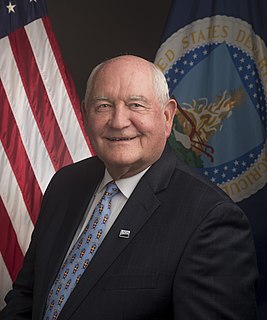A Quote by Marti Noxon
Too many people will die needlessly if we go back to letting people buy junk insurance or insurance that doesn't help people with diseases related to mental illness.
Related Quotes
The problem or the fundamental flaw of Obamacare was that they put regulations on the insurance, about 12 regulations, which increased the cost of the insurance. And so President Obama wanted to help poor, working-class people, but he actually hurts them by making the insurance too expensive to want to buy. I had someone at the house just recently was doing some work, and he said: "Oh, my son doesn't have insurance, he's paying the penalty because it's too expensive."
President Obama said, oh, we want to make insurance perfect for people, but he added all these regulatory mandates, made it too expensive. Young, healthy people didn't buy it, and the people remaining in the insurance pool were sicker and sicker. That's the adverse selection and the death spiral of Obamacare. And so really we do need to discuss the intricacies of what worked and what didn't work in Obamacare. And I think the better way to do this is to let individuals have the freedom to choose what kind of insurance is best for them. The government doesn't always know best.
We need to level the playing field so that people who buy insurance individually at the same tax rates as those who buy it than get it through work. We need to be able to let people to shop across state lines for better deals with insurance that works for them and their family, not something the government says they have to have.
The money in the stabilization fund, $130 billion which I call an insurance bailout, is put in to try to cure the adverse selection that Obamacare created by making insurance too expensive. Healthy people didn't buy it. They tried to fix this by forcing young people to buy it through an individual mandate. Even that didn't work. So the way the Republicans fix it is they don't actually fix it. They subsidize it. So we have to fix what went wrong with Obamacare, not just recapitulate something that's broken.
Right now in the insurance markets, we have sort of a disaster unfolding, a downward spiral, adverse selection, premiums in the individual market going through the roof. People can't afford insurance and insurance companies are losing hundreds of millions of dollars. If you repeal part of Obamacare to get rid of the individual mandate but keep some of the ideas, that people can still buy insurance after they're sick, the situation gets extraordinarily worse. And so what we're seeing now could be tenfold greater if you only repeal part of Obamacare.
People just want to see something happen that is positive for them in their lives. If you're struggling to pay your student-loan debts, or if you've got a kid trying to go to college and don't think you're going to be able to afford it, it really matters whether you get help or not. If you don't have health care or you have insurance but the insurance company won't pay for what your doctor says you need, then what's the point of people arguing in Washington? Why don't you give me some help to fix this problem? I will work with anybody if I think we can actually produce results for people.
As a physician and a U.S. senator, I have warned since the very beginning about many troubling aspects of Mr. Obama's unprecedented health-insurance mandate. Not only does he believe he can order you to buy insurance, the president also incorrectly equates health insurance coverage with medical care.
The premise of insurance is to spread the risk. It's the premise of homeowner's insurance, of car insurance, and of health insurance. It's one reason why it's important to have insurance when you're healthy, so that when you get sick, you won't go sign up just when you get sick, because that increases the cost for everyone.
































